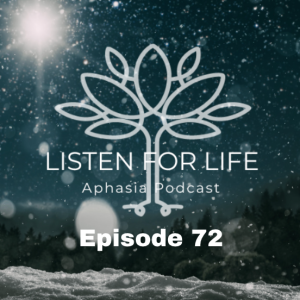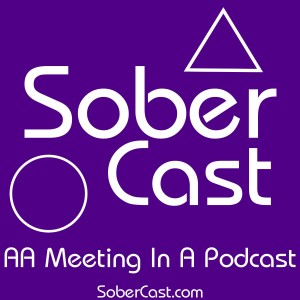

In this episode, explore the power of reflection with guest Gina Baxter, a recent intern at LIFE Speech Pathology. We discuss the importance of reflection for learning and setting goals and Gina's background and interest in speech and language pathology.
We also delve into the individualized treatment for aphasia and the life participation therapy approach. Additionally, we touch upon the challenges and benefits of telepractice and the significance of recognizing and addressing stress cues in clients with aphasia.
Gina shares a heartfelt message to the aphasia community.
Key Takeaways- Reflection is significant in personal growth and goal-setting.
- Finding time for reflection can be challenging, but it is important to incorporate it into daily routines.
- A few minutes in the morning and reflecting while in the shower can be helpful.
- Telepractice can allow for meaningful relationships and effective therapy.
- Understanding the rationale behind treatment approaches and incorporating life participation into therapy is important.
- Recognizing stress cues in clients with aphasia is significant, and there are various strategies for managing stress.
- Sharing detailed experiences with SLPs can enhance treatment outcomes for individuals with aphasia.
C - Calm Environment: Create a peaceful, distraction-free setting to facilitate better understanding and response.
L - Listen Actively: Show patience, give them time to respond, and listen with empathy.
E - Encourage Non-Verbal Cues: Encourage gestures, drawings, or any form of non-verbal communication.
A - Adapt Your Speech: Simplify your language but avoid talking down. Clarity is key.
R - Repeat and Reconfirm: Don't hesitate to repeat yourself or ask for confirmation to ensure understanding.
Keep C.L.E.A.R. in mind; you’ll communicate more effectively with someone with aphasia and build a stronger connection.
LIFE Speech Pathology provides Free Consultations and direct treatment to individuals with communication challenges, including aphasia, Parkinson's Disease, and Primary Progressive Aphasia (PPA).
LIFE Aphasia Academy provides communication partner coaching, courses, and the Listen for LIFE Podcast. Learn more at DoLIFESpeechPathology.com.
More Episodes
All Episodes>>Create Your Podcast In Minutes
- Full-featured podcast site
- Unlimited storage and bandwidth
- Comprehensive podcast stats
- Distribute to Apple Podcasts, Spotify, and more
- Make money with your podcast












